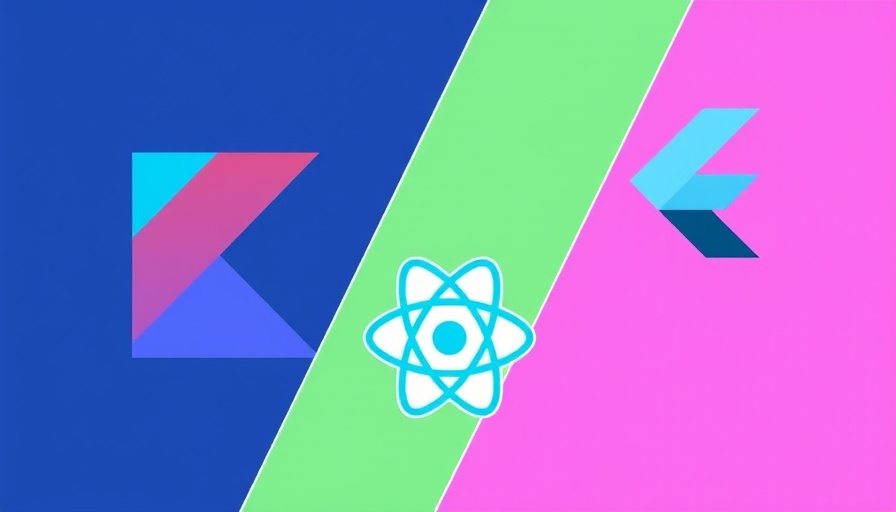
Kotlin Multiplatform vs. React Native vs. Flutter: Which Tool Will Bring Your App to Life?
In today’s tech environment, businesses are constantly searching for innovative ways to reach their users more efficiently. With the rise in mobile applications, choosing the right framework is vital. Kotlin Multiplatform (KMP), React Native, and Flutter all present distinct advantages, and understanding these differences can help you make informed decisions as you dive into app development.
Understanding What Each Framework Offers
Kotlin Multiplatform is a relatively new player in the game, developed by JetBrains, primarily aimed at Android development. It excels in allowing developers to share core business logic while keeping platform-specific user interfaces intact. This modularity enhances the user experience, as developers can create tailored UIs for different platforms while sharing code efficiently, ultimately saving time and costs.
Conversely, React Native, created by Meta (previously Facebook), uses JavaScript for mobile app development, allowing a single codebase to be used across both iOS and Android. This framework is favored for its rapid development cycle and extensive community support, which offers a plethora of libraries to leverage. With a large ecosystem, companies can easily find resources to improve their app development journey.
Flutter, developed by Google, is another robust choice that uses the Dart programming language. One of its standout features is its widget-centric approach that allows developers to create beautiful UIs with ease, making it ideal for designers looking to create visually appealing applications.
Performance Is Key: Comparing Capabilities
The performance of these frameworks often dictates the success of the applications built on them. Generally, KMP boasts high native performance by compiling code into platform-specific binaries, which enhances speed and efficiency. On the other hand, React Native utilizes a JavaScript bridge to connect with native elements, which can introduce latency in resource-intensive applications.
Flutter shines in performance as well, with its native compilation that provides a smooth user experience. Applications built with Flutter often feel competitive with their native counterparts due to fast rendering speeds and efficient layout mechanisms.
Development Experience: User-Friendly or Challenging?
When it comes to usability, developers from various backgrounds may find certain frameworks more accessible. React Native’s familiar JavaScript environment can be easier for developers transitioning from web to mobile development. Kotlin, though, offers a smoother integration for those already familiar with Java, making it seamless for Android developers.
Flutter presents a different learning curve as it incorporates the Dart programming language. While it adds initial complexity, many developers find that its widget-based architecture simplifies building intuitive user interfaces.
Community and Ecosystem Support
The choice of a development framework can heavily depend on community support and resources available. React Native currently leads in this regard, with a vibrant ecosystem filled with third-party libraries, plugins, and active discussions that help developers troubleshoot issues quickly. This support significantly cuts down on development time.
Though KMP is relatively new, its community is growing rapidly as developers recognize its potential. Meanwhile, Flutter’s community has gained momentum as it becomes increasingly popular, introducing many resources and libraries for developers to use.
Real-World Examples of Success
When considering the impact of each framework in the industry, companies like Instagram and Airbnb have effectively utilized React Native to enhance their applications’ interaction across platforms. These real-world success stories showcase the effectiveness of React Native in delivering user-friendly experiences.
On the Kotlin side, major companies like Netflix and McDonald’s are leveraging KMP, especially for projects that require close collaboration and shared logic between development teams. Flutter has also attracted attention, with high-profile projects from Alibaba and Google itself, demonstrating its capability to handle complex apps with ease.
Final Thoughts: Making the Right Choice
Ultimately, the choice between Kotlin Multiplatform, React Native, and Flutter heavily depends on your project's specific requirements, your team's expertise, and the desired user experience. If high performance and seamless integration with Android are priorities, KMP might be your best bet. However, for projects emphasizing rapid development and community resources, React Native could be ideal. If aesthetics and user interface design are paramount, then Flutter could be the framework you need.
As you embark on your app development journey, utilize available resources to weigh your options closely. Whichever framework you choose, the potential for innovation and impressive user experiences remains within reach. Do you need further assistance? Consider reaching out to our team of experts who can provide tailored guidance and strategies for your development needs.
 Add Row
Add Row  Add
Add 




Write A Comment